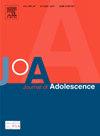Adolescents' self-esteem is often associated with their mental health, and believed to be a protective factor against depression, anxiety, and stress. However, the underlying mechanisms of this relationship warrant further exploration. Employing a longitudinal design, this study investigates the relations between self-esteem and mental health in adolescents, considering the mediating influence of self-control and the moderating effect of parental autonomy support.
A total of 1260 adolescents from China (45.9% male, 54.1% female, Mage = 15.98, SDage = 0.97) participated in this study, completing self-reported questionnaires assessing self-esteem, self-control, parental autonomy support, and mental health issues (i.e., depression, anxiety, and stress) across three time points over a 6-month period (with a 3-month interval between assessments).
Controlling for baseline levels of depression, anxiety, and stress, adolescents' self-esteem reported at wave 1 positively correlated with depression (β = −0.17, p < 0.001), anxiety (β = −0.17, p < 0.001), and stress (β = −0.17, p < 0.001) in wave 3. Furthermore, self-control reported at wave 2 mediated these relations. Besides, perceived parental autonomy support was associated with a stronger link between self-esteem and self-control.
The present study indicates the protective roles of self-esteem and self-control in relation to adolescents' mental health problems, while emphasizing the potential of a supportive family environment to strengthen these associations. The findings hold implications for the development of prevention and intervention strategies targeting adolescents' mental well-being.


